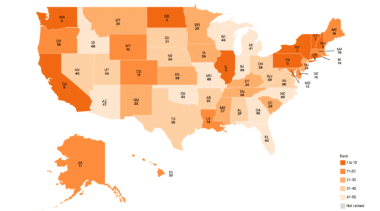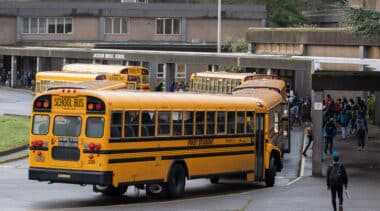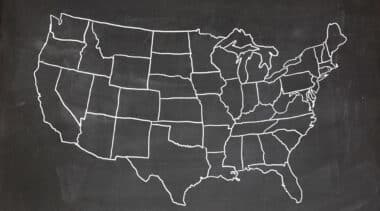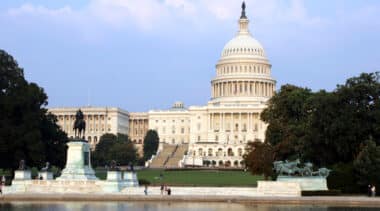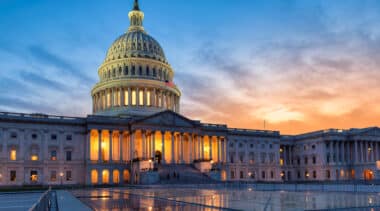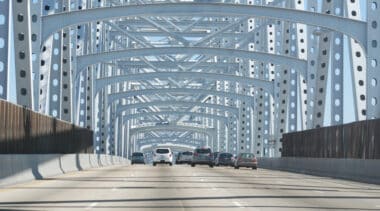-
Public education at a crossroads: K-12 education revenue and expenditure trends 2002-2020
Nationwide, inflation-adjusted public school revenues grew from $12,852 per student in 2002 to $16,065 per student in 2020.
-
Public education at a crossroads: Enrollment, staffing, and teacher salary trends 2002-2020
Nationwide, inflation-adjusted average teacher salaries fell by 0.6% between 2002 and 2020 with a total of 26 states seeing declines.
-
Public education at a crossroads: Math and reading outcomes (low-income students only)
Between 2003 and 2019, the average U.S. 4th grade NAEP math score for free and reduced-price lunch eligible students increased by seven points.
-
Public education at a crossroads: Math and reading outcomes (all students)
Between 2003 and 2019, the average U.S. 8th-grade NAEP reading score was flat. The average 8th-grade NAEP math score increased by four points.
-
Public education at a crossroads: Education spending data for all 50 states 2002-2020
Examining every state's K-12 public education spending, staffing and enrollment levels, teacher salaries and more.
-
House Bill 2854 threatens Oklahoma’s pension progress
House Bill 2854 would re-expose Oklahoma to unnecessary unfunded liabilities, financial risks, and hidden costs that would ultimately be borne by taxpayers.
-
Redirecting MPSERS’ debt payment could cost taxpayers $1.4 billion
Eliminating a $670 million annual contribution into MPSERS would require an additional $1.4 billion over the next 14 years in net pension payments.
-
A policy framework for personal psychedelics licenses
Psychedelic licenses for consumers have advantages over the current approach in two U.S. states that rely on professionals to dispense and facilitate services.
-
Major costs and risks associated with restoring the Florida Retirement System’s cost-of-living adjustment
Florida's cost of bringing back COLAs could rise above $32 billion over 30 years.
-
Missouri’s bill would revive bad pension funding policy
Pensions should not rely on variable fee revenue streams tied to the volume of activity in the criminal justice system.
-
Grading every state’s telehealth laws
While many state telehealth laws changed during the COVID-19 pandemic, some of those reforms have expired and many best practices that would improve health care and help patients still need to be implemented.
-
The implications of federal cannabis rescheduling
While the optimal solution would be to remove cannabis from the list of controlled substances entirely, moving it to Schedule III presents both immediate and long-term advantages over its current Schedule I designation.
-
The case for interstate marijuana commerce right now
Pathways to establishing an interstate marketplace for marijuana.
-
Frequently asked questions about STATES Act 2.0
The STATES Act 2.0 is an incremental change that could garner the bipartisan support needed to move a marijuana bill through a deeply divided Congress.
-
Louisiana needs to transition from per-gallon gas taxes to per-mile user fees
With a mid-level shift to electric vehicles, Louisiana could anticipate annual fuel tax revenue would be reduced by $250 million by 2040 and over $325 million by 2050.
-
FTC’s lawsuit against Facebook is a test case for path-breaking interpretation of antitrust policy
If the FTC can convince the courts that Facebook’s allegedly anticompetitive behavior has damaged the market, the default solution is nothing short of the dismantling of the company.
-
Study: Menthol cigarettes do not increase youth smoking more than other cigarettes
This study concludes that menthol cigarette availability does not pose a greater threat to public health than regular cigarette availability.
-
The importance of North Carolina’s ports and how to improve them
This policy report examines the roles ports play in North Carolina’s economy, as well as how they are operated.
